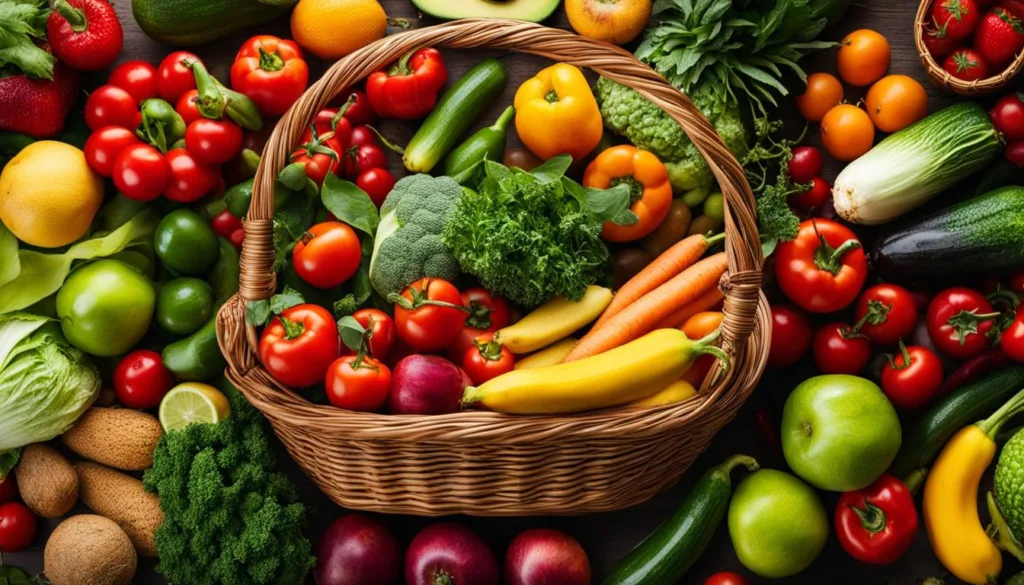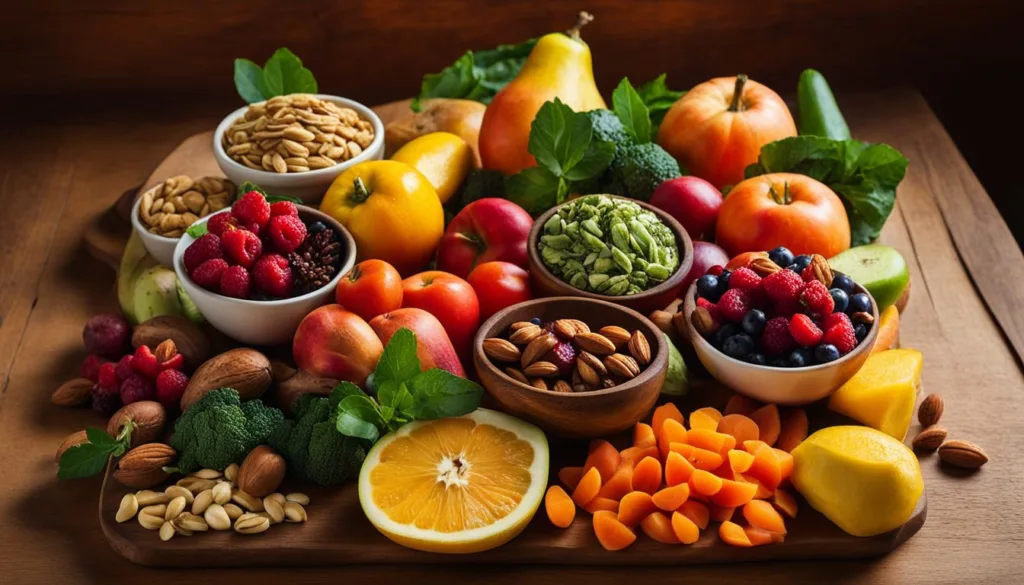Plant-Based Diets & Veganism
Plant-Based Diet Guide & Tasty Recipes for Newbies
One day as I was sitting down at my dining table, staring at the plate of chicken breast, rice, and air-fried vegetables in front of me, I couldn’t help but realize that I was once again, eating the same thing. I needed more variety in my life! colorful veggies, delicious recipes, etc. That’s when I decided to give a plant-based diet a chance. Don’t get me wrong I still eat my chicken but now my diet consists of at least 85% plant-based.
Transitioning to a plant-based diet was easy for me as I am used to making changes to my diet. For example, I stopped eating red meat when I was 16 years old, followed by pork and then turkey but that’s a conversation for another day/post. 🙂
Making these changes was not just about the food; it was about the impact it would have on my health, my connection to nature, and my desire to make a positive change in the world.
If you’re like me, searching for a more fulfilling and compassionate way of eating, then this beginner’s guide to plant-based eating is for you. Join me on this journey as we explore the basics of a plant-based diet, discover its health benefits, and learn mouthwatering recipes that will leave you craving more.

Key Takeaways:
- A plant-based diet offers a healthier and more sustainable way of eating.
- Transitioning to plant-based eating gradually can make the process more manageable.
- Plant-based diets have been linked to lower risks of chronic diseases and weight management.
- Adopting plant-based cooking allows you to explore a variety of delicious and nutritious recipes.
- Start your plant-based journey today and experience the incredible benefits for yourself.
Table of Contents
The Basics of a Plant-Based Diet
A plant-based diet is a way of eating that focuses on whole, unprocessed foods derived from plants. It involves incorporating a variety of fruits, vegetables, whole grains, legumes, and nuts into your meals. By eliminating animal products such as meat, dairy, and eggs, you can fully embrace the nutritional benefits of plant-based eating.
Transitioning to a plant-based lifestyle can be done gradually, allowing you to make small changes over time. This approach makes it easier to adjust to the new eating plan and ensures that you can maintain a well-rounded diet that meets your nutritional needs.
Here are some plant-based diet tips to help you transition:
- Start by adding more fruits and vegetables to your meals. Aim for a variety of colors to ensure you’re getting a wide range of nutrients.
- Experiment with different plant-based proteins such as tofu, tempeh, and lentils to replace animal-based proteins.
- Include whole grains like quinoa, brown rice, and oats in your diet for added fiber and nutrients.
- Incorporate healthy fats from sources like avocados, nuts, and seeds.
- Stay hydrated by drinking plenty of water throughout the day.
Remember, transitioning to a plant-based eating plan is a journey that can be tailored to your individual preferences and needs. Start small, be open to trying new foods and recipes, and listen to your body to find what works best for you.

Transitioning to a Plant-Based Lifestyle
Transitioning to a plant-based lifestyle is not about strict rules or deprivation, but rather about embracing a more sustainable and compassionate way of eating. By incorporating more plant-based foods into your meals, you can experience a wide range of benefits, including:
| Benefits of a Plant-Based Diet |
|---|
| Improved heart health |
| Reduced risk of chronic diseases |
| Weight management |
| Increased energy levels |
| Improved digestion |
| Reduced environmental impact |
Health Benefits of a Plant-Based Diet
Numerous studies have shown that following a plant-based diet can have significant health benefits. A plant-based eating plan has been associated with lower risks of chronic diseases such as heart disease, type 2 diabetes, certain types of cancer, and obesity.
The high fiber content in plant-based foods can aid in weight management and promote a healthy digestive system. Additionally, plant-based diets have a positive impact on the environment, as they require fewer resources and produce fewer greenhouse gas emissions compared to animal-based diets.
Lower Risk of Chronic Diseases
By adopting a plant-based diet, you can reduce your risk of developing chronic diseases. Research suggests that plant-based diets high in fruits, vegetables, whole grains, and legumes can lower the risk of heart disease by up to 31%.
Plant-based eating is also associated with a reduced risk of type 2 diabetes, as plant foods are typically low in saturated and trans fats and high in fiber, which helps regulate blood sugar levels.
Healthy Weight Management
One of the benefits of a plant-based diet is its positive impact on weight management. Plant-based foods are generally lower in calories and higher in fiber compared to animal-based products. The high fiber content in fruits, vegetables, whole grains, and legumes can help you feel fuller for longer and reduce the overall calorie intake.
This, in turn, can contribute to maintaining a healthy weight and preventing obesity-related health conditions.
Improved Digestive Health
Plant-based diets rich in fiber provide numerous benefits for digestive health. Dietary fiber adds bulk to the stool, promoting regular bowel movements and preventing constipation. It also acts as a prebiotic, fueling the growth of beneficial gut bacteria that support a healthy digestive system.
By including a variety of plant-based foods in your diet, you can enhance the health and function of your gut.
Sustainable and Environmentally Friendly
Choosing a plant-based diet is not only good for your health but also for the planet. Animal agriculture is a significant contributor to greenhouse gas emissions and resource consumption. By opting for plant-based alternatives, you can reduce your environmental footprint and contribute to a more sustainable future.
Plant-based diets require fewer resources, such as water and land, and produce fewer greenhouse gas emissions, compared to animal-based diets.
Delicious Plant-Based Recipes for Beginners

Adopting on a plant-based diet doesn’t mean sacrificing taste or variety in your meals. With countless plant-based recipes available, you can enjoy delicious and satisfying meals without compromising your health goals. Here are some ideas:
1. Marinated Tofu Salad: A refreshing salad packed with marinated tofu, crisp vegetables, and a tangy dressing.
2. Black Bean Quinoa Bowl: A protein-rich bowl featuring black beans, quinoa, fresh vegetables, and a zesty lime dressing.
3. Berry-Almond Smoothie Bowl: Start your day with a smoothie bowl bursting with antioxidant-rich berries, creamy almond butter, and crunchy toppings.
4. Coleslaw with Vegan Mayonnaise: A classic coleslaw made with plant-based mayonnaise, cabbage, carrots, and a touch of sweetness.
5. Cauliflower Soup: A soup made with creamy cauliflower, aromatic herbs, and a hint of nutmeg.
6. Chocolate Chia Pudding: Satisfy your cravings with a rich and creamy chocolate chia pudding topped with fresh berries and nuts.
7. Mediterranean Bistro Box: Create a Mediterranean-inspired meal with a variety of olives, hummus, pita bread, roasted vegetables, and falafel.
8. Broccoli “Noodles” Lo Mein: Enjoy a tasty twist on traditional lo mein by using spiralized broccoli instead of noodles, stir-fried with colorful veggies and a savory sauce.
| Recipe | Calories | Protein (g) | Fat (g) | Carbs (g) |
|---|---|---|---|---|
| Marinated Tofu Salad | 250 | 15 | 10 | 20 |
| Black Bean Quinoa Bowl | 350 | 20 | 8 | 50 |
| Berry-Almond Smoothie Bowl | 300 | 12 | 15 | 40 |
| Coleslaw with Vegan Mayonnaise | 200 | 3 | 10 | 25 |
| Cauliflower Soup | 150 | 5 | 8 | 18 |
| Chocolate Chia Pudding | 220 | 7 | 10 | 27 |
| Mediterranean Bistro Box | 400 | 15 | 20 | 45 |
| Broccoli “Noodles” Lo Mein | 280 | 10 | 12 | 35 |
These recipes showcase the versatility and flavors of plant-based ingredients while providing essential nutrients for a well-balanced diet. Looking for a quick and easy weeknight meal? Need a show-stopping dish for a special occasion? there’s a delicious plant-based recipe for every craving! Experiment with different flavors, ingredients, and techniques to discover your favorites and make plant-based eating an enjoyable part of your lifestyle.
Conclusion
Transitioning to a plant-based diet as a beginner can be hard but it is an exciting and rewarding journey. By adopting a plant-based diet, you can improve your health, reduce your environmental impact, and enjoy a wide variety of delicious meals.
With the right resources and a little creativity, you can adopt a plant-based lifestyle and experience the numerous benefits it has to offer. From increased energy levels to better digestion, you will notice positive changes in your overall well-being.
So, if you’re considering a plant-based diet, I encourage you to start your journey today. Explore new ingredients and try out delicious plant-based recipes. Transitioning to a plant-based lifestyle not only benefits you but also has a positive impact on the planet. It’s a win-win situation that allows us to thrive while caring for our environment.



